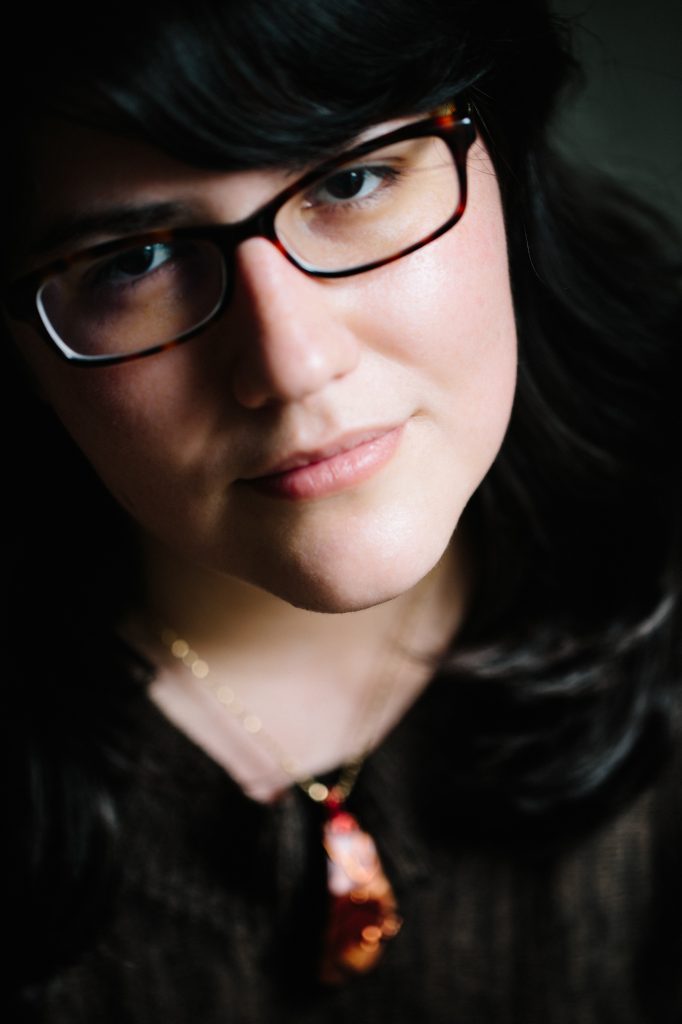By Ruth Joffre
LOCAL GIRL LEARNS TO SWIM, PROMPTLY SAVES PUPS—that was the headline on the front page of the town newspaper the day after Ángelina Villalobos rescued the Rottweiler puppies drowning in Flint Creek. Her father had taught her to swim earlier that same week, not at the municipal pool but in the shaded, slow-moving water under the Flint Creek Bridge. There, no lifeguards cast shadows, no pool noodles bopped her on the head or warned her to avoid the deep end where preteens entertained themselves by splashing each other until they vomited pool water and chips. When she floated on her back, she saw a roof of light collecting on the trees overhead, the arched beams melding with the branches to form a cathedral. Her name was soft inside it: Án-gel, mi niña, cuidado, her father would say, whenever she drifted too close to the rocks. If not for him, swimming would not have come so naturally to her. It reminded her too much of fighting—against the water, the minnows, the insistent buzz of dragonflies. For her, the creek was too alive for comfort. Too sinuous, like the puppies squirming inside the burlap sack.
What she remembers most about that day is the arc of the sack sailing through the air (the amount of force that must have been in the throw to make the sack land that far from the bridge). One of the puppies died on impact—or perhaps it was already dead, smothered by the soft bellies and frantic paws of its brothers and sisters. Her father kept calling out—Ángelina! Ángelina!—as she scrambled toward the shore, balancing the sack on her belly first with her right hand, then the left, back and forth, as she alternated arms in a backstroke. His head had been turned, his gaze on the tamales he was unwrapping for lunch, when the driver of the speeding SUV hurled the burlap sack out the window. He didn’t understand—not until she dove for the bag. When he reached her on the other shore, Angelina was just loosening the knot, revealing the first frightened nose. Only later did she realize the puppies couldn’t open their eyes because they were too young. Newborns separated from their mother and thrust into the limelight.
When the news broke, strangers from across the state scrambled to adopt these poor pups, whose little eyes opened for the first time at the shelter. In the news segment, the Rottweiler pups were shown wriggling around on a blanket, their limbs so small and their coordination so nascent that when they attempted to play they sometimes toppled over, their wobbly legs tentative on that soft cotton surface. When Angelina went to visit them the day after, she realized for the first time that the pups were in a cage. That the cameraman had lain on the floor and positioned the camera so the chain link fence on three sides of the cage was out of sight and viewers would only see the pale grey wall behind the pups. It had looked like a living room to her or like the stone underside of the Flint Creek Bridge as she floated under it, bathed in shadows. She did not beg her father to adopt one of the puppies, though there were a couple left. One of the little ones was learning how to bark from the bigger dogs at the shelter, but its voice was still too small. Its barks sounded like little coughs. Like the sputtering after as the puppies tried to rid creek water from their lungs, too young to accuse anyone.

Ruth Joffre is the author of the story collection Night Beast, which was longlisted for The Story Prize. Her work has appeared or is forthcoming in Kenyon Review, Lightspeed, Gulf Coast, Prairie Schooner, The Masters Review, Hayden’s Ferry Review, Pleiades, and elsewhere. She is the 2020-2021 prose Writer-in-Residence at Hugo House.
![[PANK]](https://pankmagazine.com/wp-content/themes/pank/assets/images/pank-logo-large.png)
